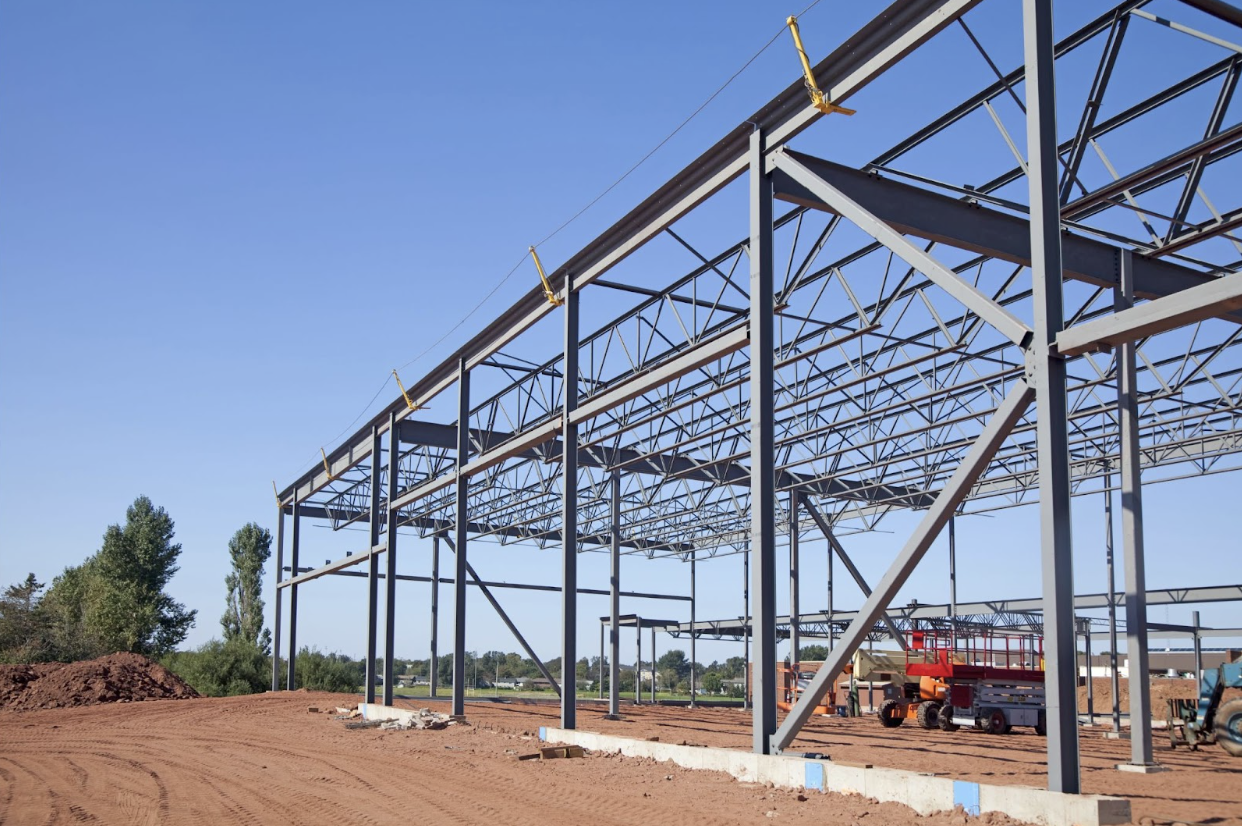Exploring the Environmental Benefits of Structural Steel

In the quest for sustainable construction practices, one material shines as a frontrunner: structural steel. With its impressive recyclability and reduced energy requirements, steel offers many environmental benefits that make it the optimal choice for sustainable construction projects worldwide. In this blog post, we will discuss the remarkable environmental benefits of structural steel and why it stands out in construction sustainability efforts.
The Environmental Benefits & Sustainable Properties of Structural Steel
Recyclability: A Circular Approach
One of the key environmental benefits of structural steel lies in its remarkable recyclability. Steel can be recycled indefinitely without losing its inherent properties or strength. In fact, according to industry data, an astounding 93% of steel is recycled globally. This recycling rate far surpasses that of other construction materials, such as concrete or wood, which often end up in landfills after demolition or renovation projects.
The recyclability of structural steel presents a compelling case for a circular economy in the construction industry. Unlike other materials, steel can be collected, processed, and transformed into new steel products with minimal loss of quality. By embracing steel’s recyclability, we can reduce the demand for virgin materials and minimize the carbon footprint associated with steel production.
Energy Efficiency in Recycling
Another remarkable aspect of structural steel’s environmental benefits is its energy efficiency in the recycling process. Recycling steel requires significantly less energy than the energy-intensive production of new steel. According to a study, recycling steel can save up to 60% of the energy needed for producing steel from raw materials.
The energy savings achieved through steel recycling translate into substantial reductions in carbon emissions. By choosing recycled steel over virgin steel, construction projects contribute to lowering greenhouse gas emissions. This environmental advantage makes structural steel a prime candidate for sustainable construction that aligns with global efforts to reduce carbon footprints.
Durability and Longevity
The environmental benefits of structural steel extend beyond its recyclability and energy efficiency. Steel structures have a reputation for exceptional durability and longevity. Steel is resistant to a variety of environmental factors, including corrosion, pests, and fire. As a result, steel buildings and infrastructure have longer lifespans compared to many other construction materials.
The extended lifespan of steel structures has a significant positive impact on the environment. It reduces the need for frequent repairs, renovations, and reconstructions, thereby minimizing the consumption of additional materials and resources. The durability of structural steel contributes to the conservation of natural resources and promotes a more sustainable approach to construction.
Reduced Waste and Landfill Diversion Environmental Benefits
The construction industry generates vast amounts of waste, contributing to overflowing landfills and environmental degradation. However, the use of structural steel can help mitigate this issue. As a highly recyclable material, steel significantly reduces waste generation during demolition or renovation projects.
Instead of ending up in landfills, steel components can be salvaged, processed, and reintegrated into new construction projects. This waste reduction and landfill diversion aspect of steel construction aligns with the principles of a circular economy, where resources are utilized efficiently, waste is minimized, and the lifespan of materials is extended.
Expertise and Quality Craftsmanship: Discover Team BES
By embracing the environmental benefits of structural steel, the construction industry can make significant strides toward a more sustainable future. From reducing carbon emissions to diverting waste from landfills, steel’s positive impact on the environment is undeniable. As architects, engineers, and stakeholders continue to prioritize sustainability, structural steel emerges as a key player in creating resilient and eco-friendly built environments.
Team BES’ expertise in structural steel ensures a solid foundation for even the most complex steel structures. From structural steel fabrication to installation, our team will work closely with you to meet your specific requirements and provide you with durable, environmentally-friendly, and reliable results. Let’s work together: https://www.teambes.com/
